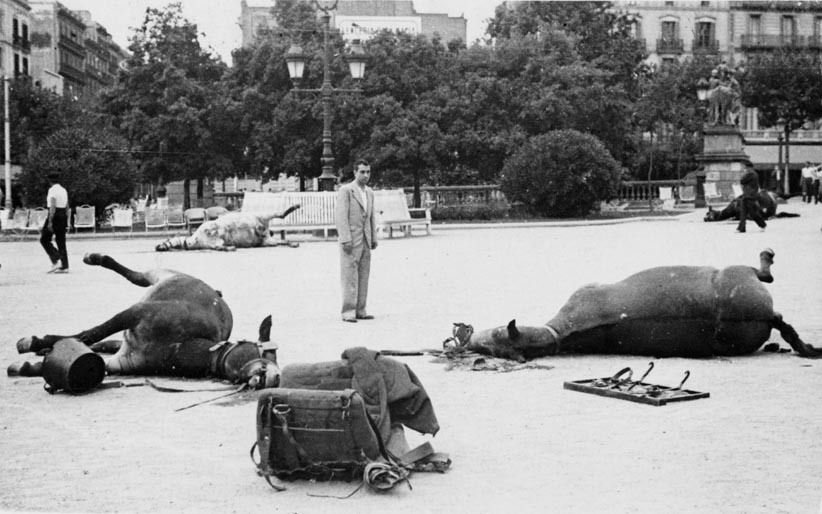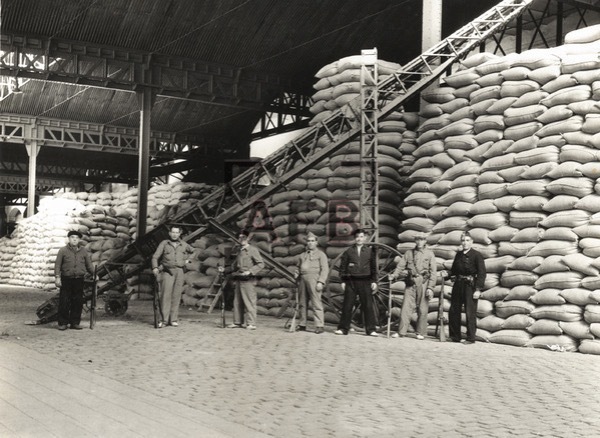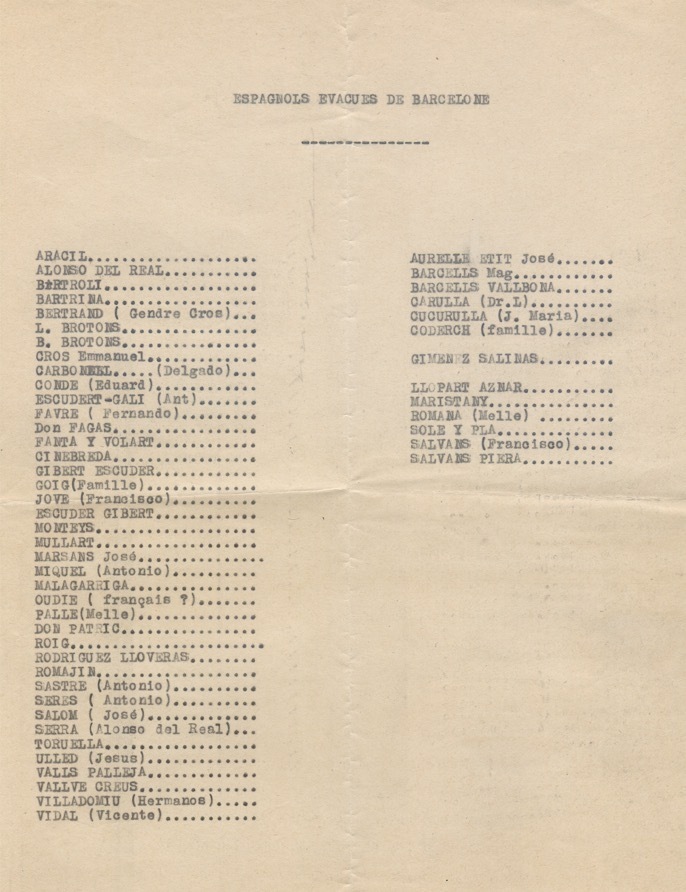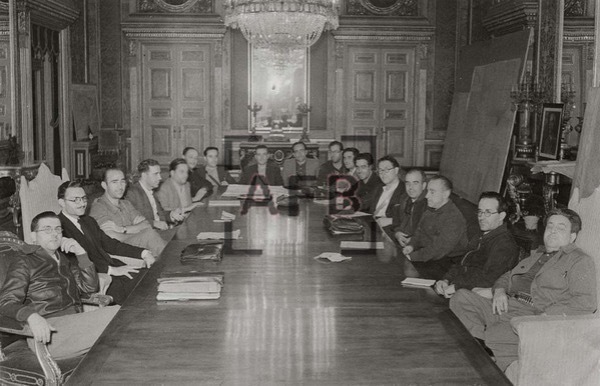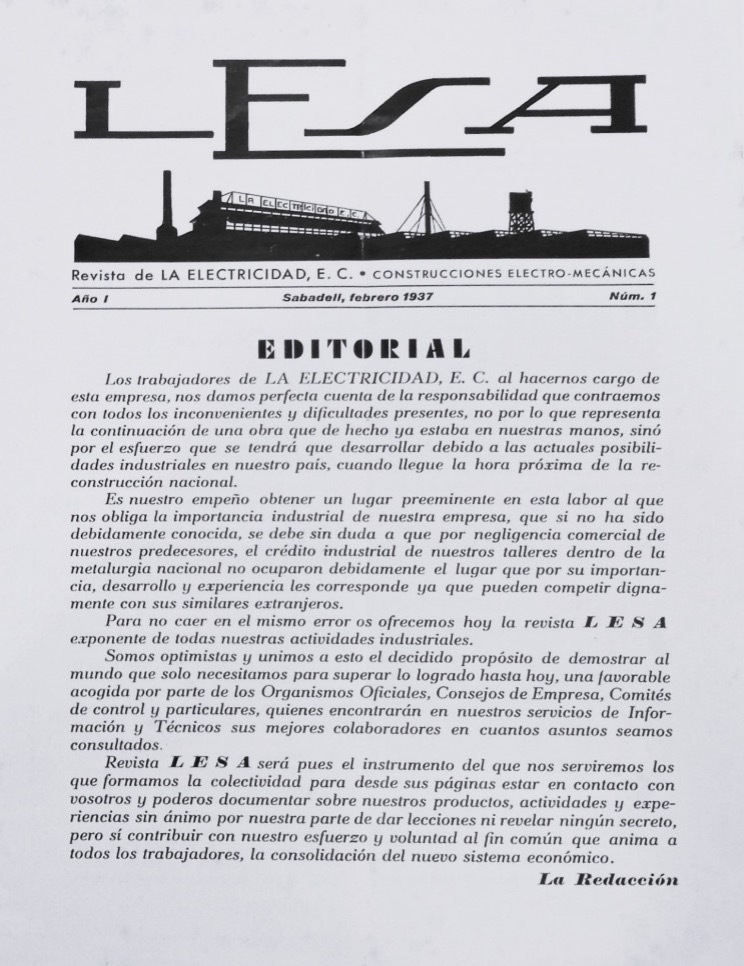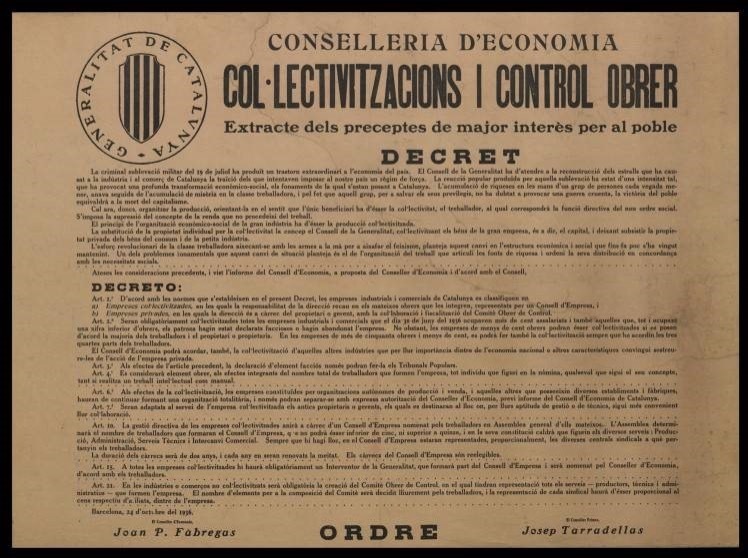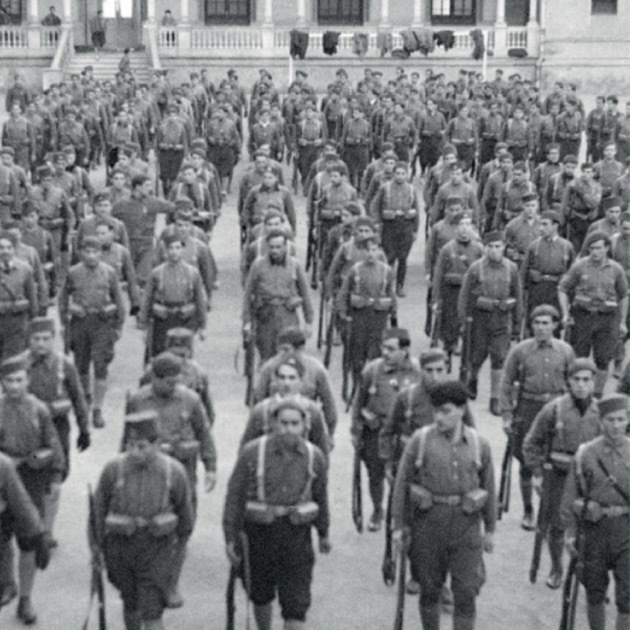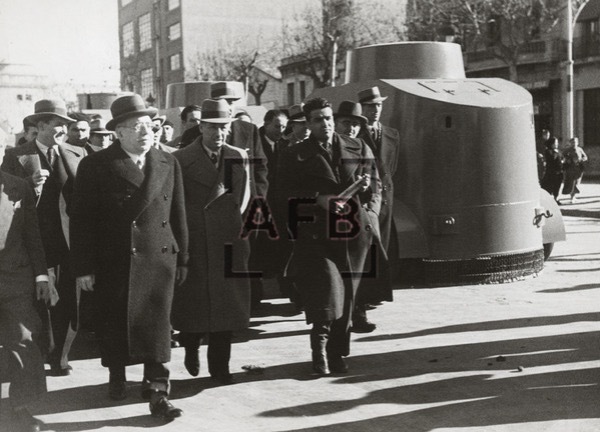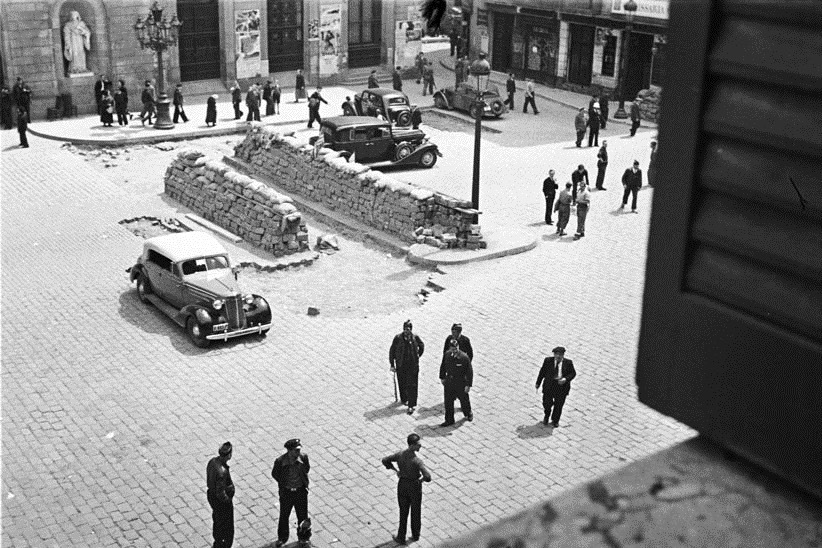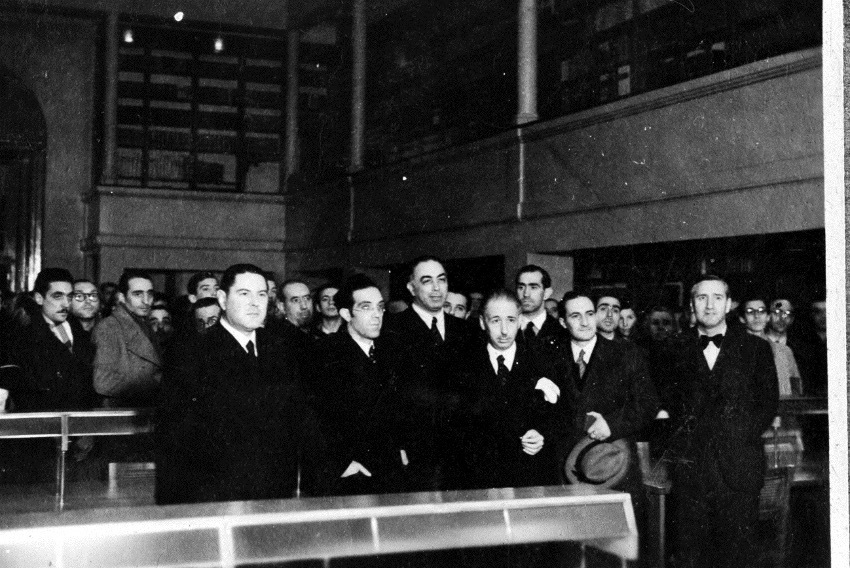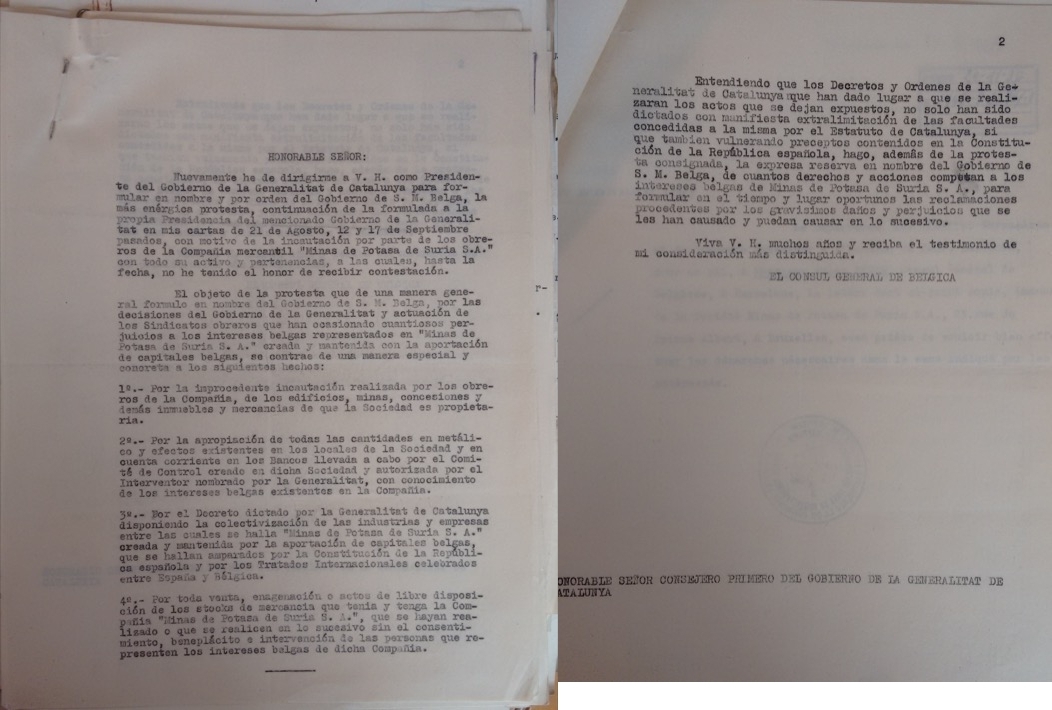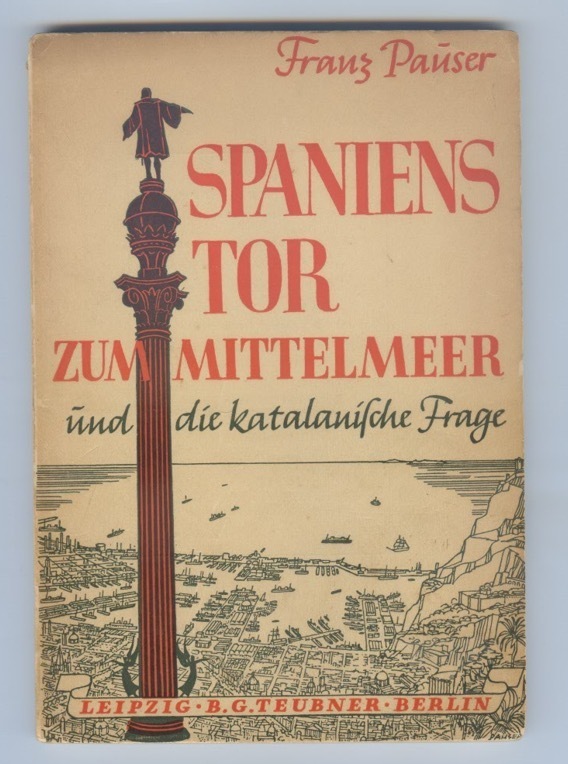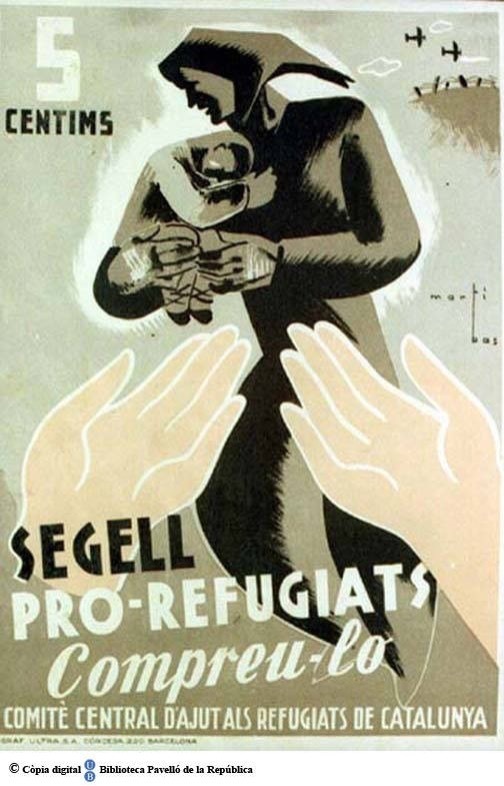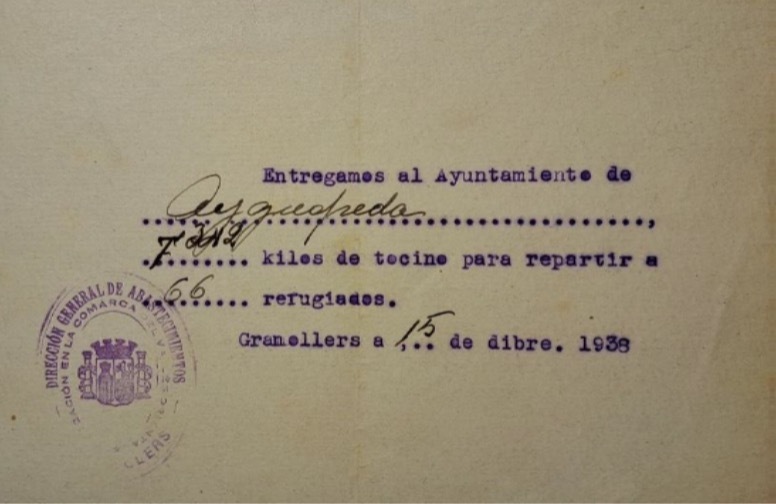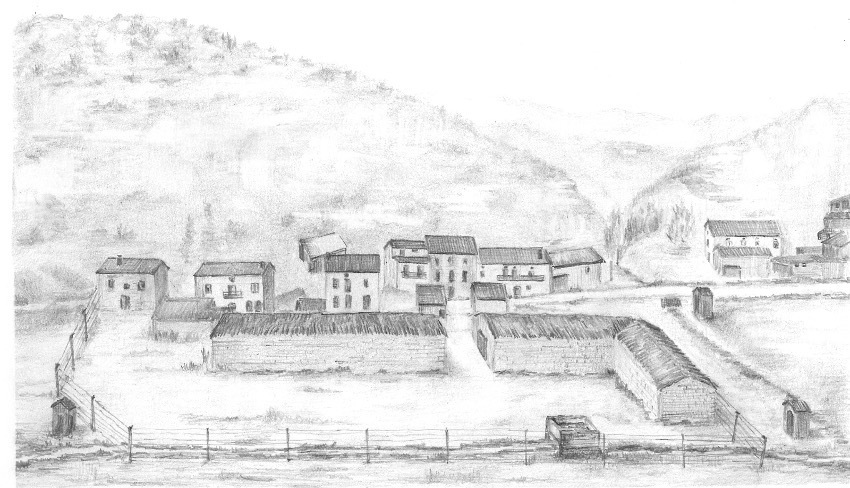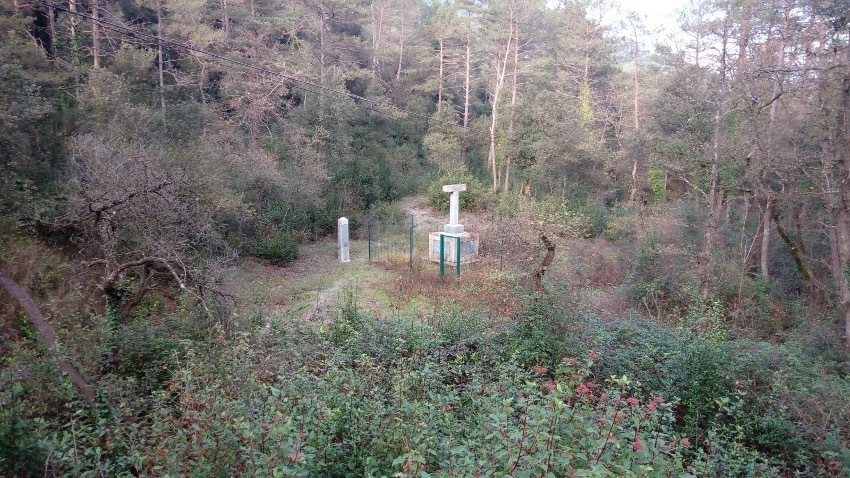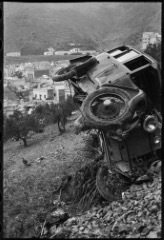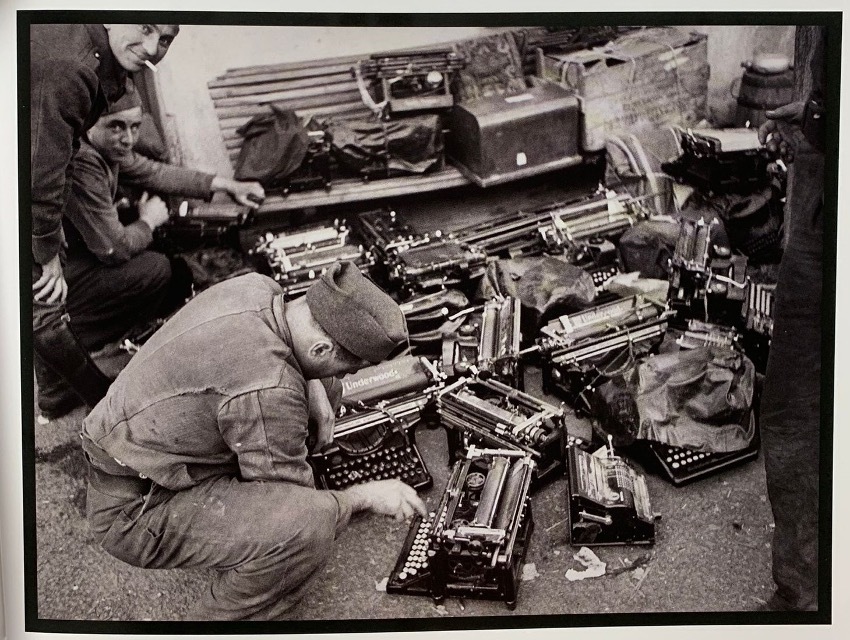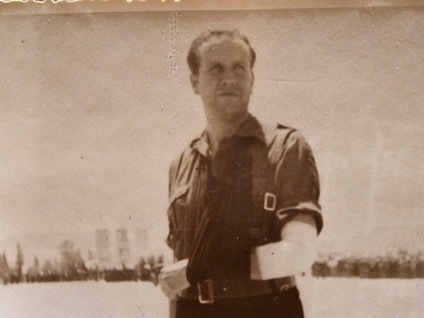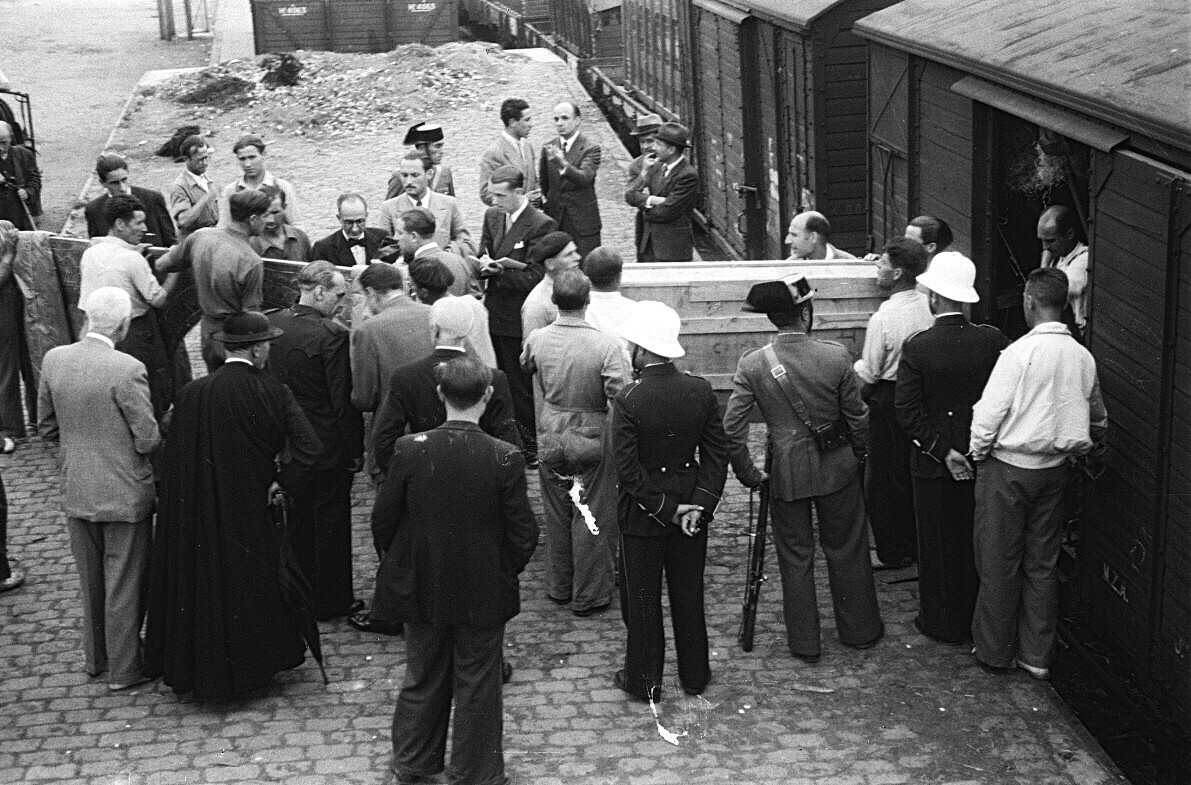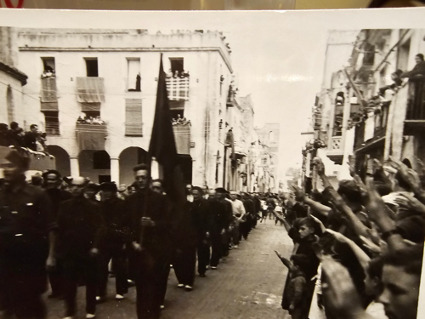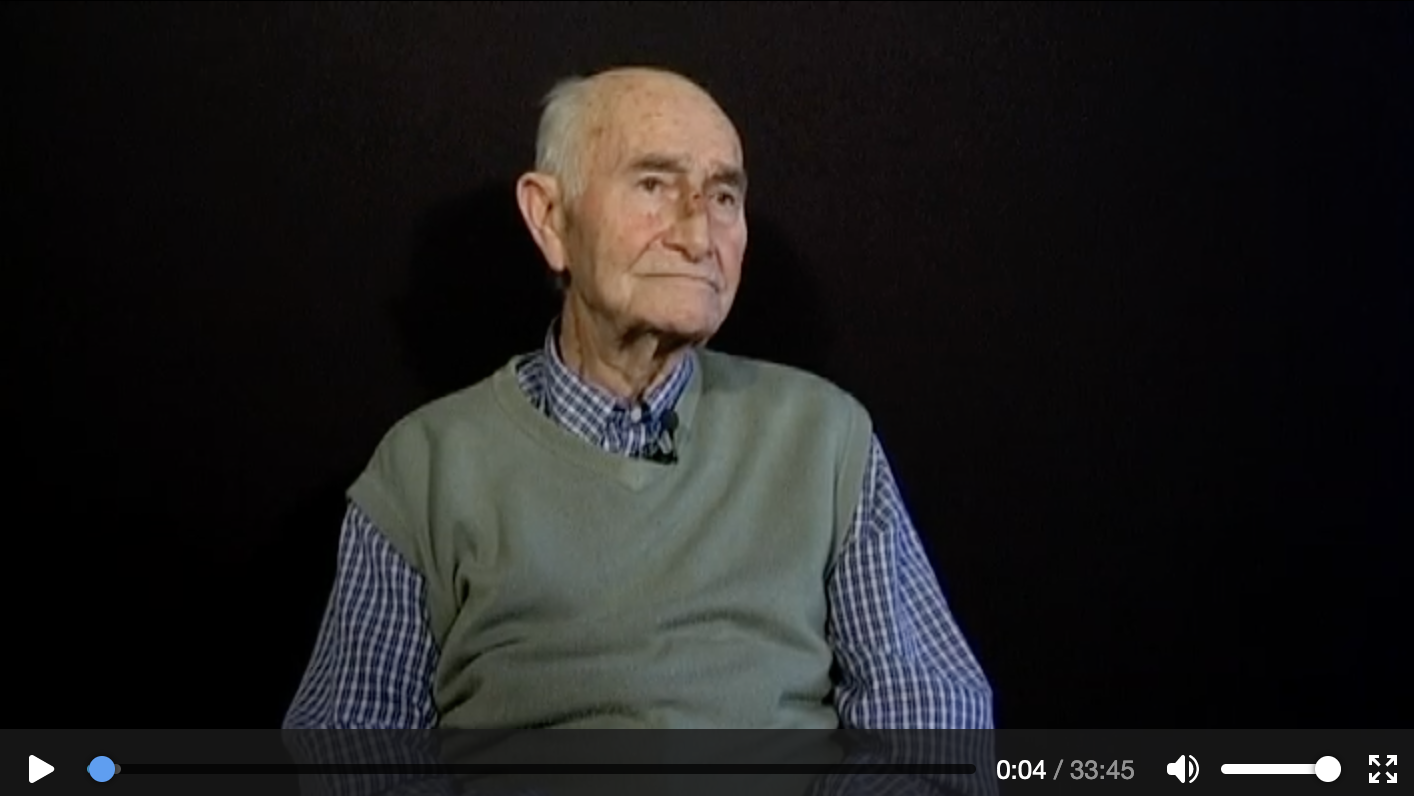In Catalonia, the Civil War had specific characteristics deriving from a number of factors. One was the Autonomy Statute that had come into effect in 1932, making the region the only part of Spain to do so before the outbreak of the war. In contrast, the Basque Country was granted an autonomous government only after the war had broken out and lost its territory in 1937, although the Basque government moved to Barcelona. The government of Catalonia, the Generalitat, remained in place and in control of its territory until almost the end of the conflict. Two other key factors were Catalonia had a distinctive system of political parties and trade unions and its status as the most industrialized region in the country.
The defeat of the military uprising by unions and working-class parties as well as the forces of public order created a situation of dual power between the Generalitat and the newly-created Antifascist Militias Committee. (Unlike Madrid, in Barcelona and other cities in the region, the army came out of the barracks and attempted to take control.) It also unleashed a harsh repression and an extensive process of collectivization of the economy. Militia columns from Catalonia were sent to the Aragón front, and to the Balearic Islands where they failed to capture Mallorca and Ibiza. There would also be an attempt to create a separate Catalan army.
The tension between the two power holders: one dominated by the anarcho-syndicalist CNT-FAI and the Trotskyist POUM and the other by the Generalitat, the Communist PSUC, the Socialist UGT union organization and others, beneath which lay the question of whether revolution or the war should take priority, led to the 1937 “May Events” that decided the question in favor of the latter. The transfer of the central government from Valencia to Barcelona in October1937, led to a series of conflicts with the Generalitat in which the autonomous government saw its powers progressively reduced.
All this took place in a context of overpopulation caused by the massive influx of refugees from other parts of Republican Spain and increasing food shortages, and even hunger, in the cities, especially in Barcelona. The final Francoist assault on Catalonia brought the flight of hundreds of thousands of people, civilians as well as soldiers, to France. Many would return to Spain during 1939. Those who remained suffered great hardship, and experienced the traumas that followed the outbreak of World War II and France’s surprisingly rapid defeat in June 1940.
VSCW contributors: JMT








